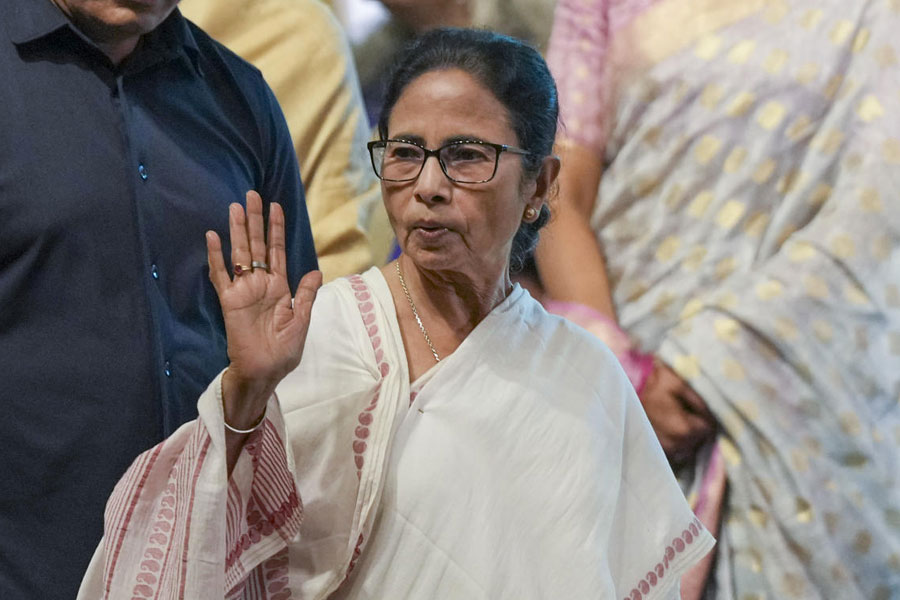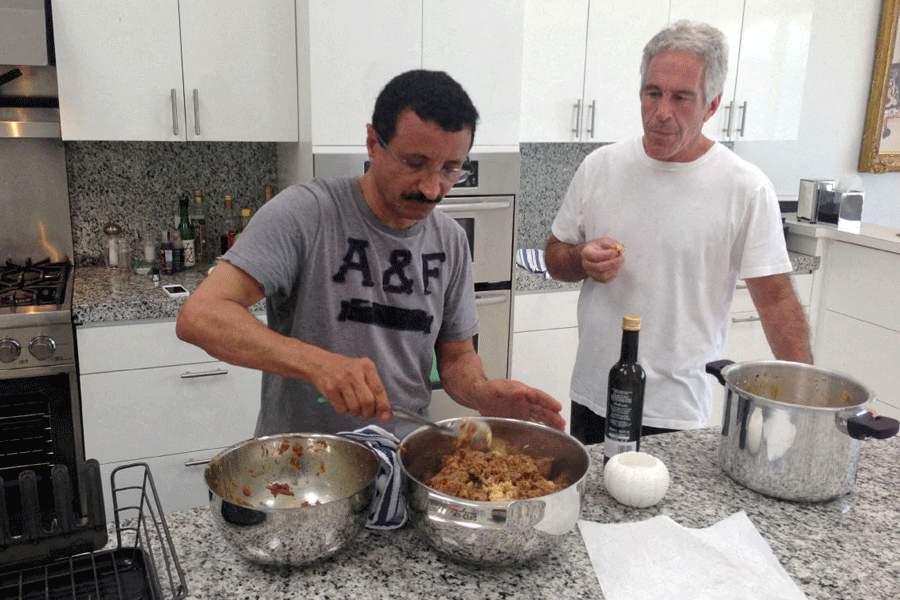Chief minister Mamata Banerjee loosened the state’s purse strings for young doctors on Monday in an apparent bid to reach out to a segment that was part of a spirited protest against her government last year.
Addressing a meeting attended by hundreds of doctors of varying levels of seniority, she announced a monthly pay hike of ₹10,000 to ₹25,000, drawing thunderous applause at the Dhana Dhanyo auditorium in Alipore.
The bounty came tempered with a note of caution. The chief minister reminded senior doctors about their mandatory eight-hour shift at government hospitals and asked them not to leave critical surgeries like Caesarean sections to juniors.
Mamata said her government would allow government doctors to engage in private practice within 30km of the hospital where they were posted. The current limit is 20km.
“There is a need to increase the salaries of junior (interns, housestaff and PG trainees) and senior residents (both colloquially called junior doctors),” Mamata said before announcing the pay hikes.
A large section of junior doctors had spearheaded the statewide protests following the rape and murder of a postgraduate trainee at RG Kar Medical College and Hospital on August 9.
They struck work for 42 days, crippling several wings of the state’s healthcare system, and staged a sit-in outside Swasthya Bhavan and a 17-day fast in the heart of the city through Bengal’s biggest annual festival, Durga Puja.
Thousands of ordinary people had rallied behind the doctors who had, at a live-streamed meeting with Mamata, aggressively berated the chief minister on the lack of hospital security and lectured her on the usage of the term “accused”.
Monday’s meeting was the chief minister’s first face-to-face with doctors since the RG Kar protests. Many felt it was an attempt to mollify a segment that had put up a stiff challenge to her government.
On Monday, a section of junior doctors said Mamata’s gesture was not enough.
Aniket Mahata, a member of the Junior Doctors’ Front and one of the leaders of the RG Kar protest, said: “The junior doctors’ remuneration in Bengal is among the lowest in the country and the hike is something they deserved. But what about the corruption in the healthcare sector?
“What about the huge vacancies at government hospitals? What happened to the central (patient) referral system? These issues were not addressed.”
Atanu Biswas of the West Bengal Junior Doctors’ Association welcomed the chief minister’s announcements.
“It shows appreciation for the hard work done by junior doctors. We welcome the move. It also shows that the chief minister was always empathetic towards junior doctors,” he said.
To the senior doctors, the chief minister said: “Please do not leave all the responsibilities on junior doctors relating to heart surgeries and Caesarian sections. Please provide at least eight hours’ service at government hospitals.I have no problem if you do private practice after that, but do not leave before eight hours.”
Monday’s meeting, organised by the State Level Grievance Redressal Committee, came after the panel had held a series of meetings with junior and senior doctors at medical colleges and hospitals since January and placed their grievances before Mamata. The committee was formed during the height of the protests.
Reading out from a document she held in her hand, Mamata said the block medical officers of health (BMOHs) had demanded a yearly bonus on a par with block development officers (BDOs).
“I will give them 15 days’ (additional) salary (a year),” she said.
Pooja Maitra, a BMOH from Nadia who attended Monday’s meeting, said that BDOs received a full month’s extra salary every year and they too had demanded that.
“The chief minister today announced that we would get 15 days’ additional salary instead of a full month’s,” Maitra said.
Mamata had begun her address to the doctors with a reference to the RG Kar victim.
“I express my condolences to the bereaved family of my sister who has died. We demand adequate punishment.... I have myself walked on the streets. Our government has passed the Aparajita bill. It is lying (seta pore achhe),” she said, alluding to the wait for the governor’s assent.
The bill looks to speed up the investigation and trial of rapes and prescribes stringent punishment.










